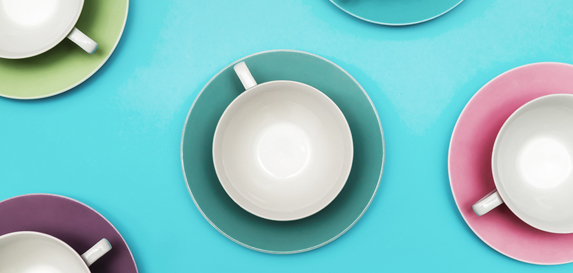Controversy has long brewed over whether coffee is good for you. Get the benefits of drinking coffee without the drawbacks.
Hundreds of studies have determined there are both benefits and drawbacks to regular coffee consumption. Here's what you need to know.
Benefit Breakdown
Studies have found moderate coffee consumption does not increase cancer risk. In fact, for some types of cancer, coffee could lower risk and provide other positive health benefits.
Benefits include:
- Decreased weight gain
- Lower risk of developing diabetes
- Lower risk of developing liver diseases
- Slower progression of liver diseases
- Possible protection against liver and endometrial cancers
- Protection against the skin cancer basal cell carcinoma
- Lower risk in men for Parkinson’s disease
- Protection against cardiovascular disease
- Lower risk of developing breast, rectal and colon cancers
More research is being conducted to measure the effects of coffee on other types of cancers.
Healthful Ingredients
Coffee contains antioxidants and caffeine. Research has found that these two elements provide potential health benefits.
Antioxidants
Many of the health benefits gained from drinking coffee are due to its antioxidants. Antioxidants are substances that prevent cellular damage by removing oxidizing agents, which can create harmful molecular imbalances and even impair DNA.
Caffeine
While caffeine can boost your energy levels, you need to watch how much caffeine you consume in everything you eat and drink. Caffeine stimulates the central nervous system. In small quantities, caffeine can increase alertness and improve your mood. But too much in a short period can cause you to feel jittery or shaky.
Despite the health benefits connected to drinking coffee, there’s no reason to start brewing a cup if you don’t enjoy it. If you drink coffee regularly, be mindful of how much you’re drinking and how much caffeine you’re consuming in other foods and beverages.
Daily Limits
Experts stress we should limit caffeine intake to 400 mg or less each day, which is about one to two cups. On average, one cup of coffee has about 100 mg of caffeine, though, a medium cup of brewed coffee from Starbucks has more than 300 mg of caffeine.
Keep in mind, each person has a different metabolic rate, and your body may process coffee and caffeine differently. You may want to cut back if you start to feel jittery or if your heart is racing.
Pregnant women and women on hormone replacement therapy should keep the amount of caffeine they eat and drink lower than the suggested average; no more than 300 mg of caffeine a day.
Experts also recommend you choose filtered coffee over non-filtered drinks. Coffee brewed using a paper filter strains out kahweol and cafestol, two substances that can raise cholesterol levels.
Watch the temperature of your coffee. Studies on esophageal cancer, cancer that starts in the food pipe, suggest drinking beverages 149 degrees Fahrenheit or hotter can be a contributing factor.
Caution: Too Much of a Good Thing
In moderation, coffee can be beneficial. However, there are several risks to keep in mind:
-
Cardiovascular and other health issues. One of the biggest risks is caffeine's effects on the cardiovascular system. Some of the associated health concerns include heart palpitations, arrhythmias, stomach ulcers, upset stomach or difficulty sleeping.
-
Caffeine addiction. Regular caffeine use can alter the chemical makeup of your brain and cause mild physical dependence. Caffeine withdrawal symptoms include headaches, muscle pains, fatigue, mental fogginess and nausea.
- Extra sugar and fat. Health experts suggest the healthiest coffee order is black, without sugar. That way, you get all the healthy antioxidants without adding unhealthy glucose and fat to your diet. If black coffee is too bitter, try to limit the additives—and stick to natural options. For example, add a splash of almond milk and a bit of honey as a natural sweetener.
Regular coffee drinkers looking for coffee alternatives may consider green tea as a substitute. It has lower levels of caffeine and packs significant amounts of flavonoid antioxidants, which have health benefits.

